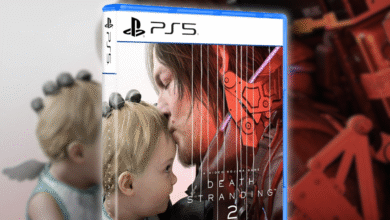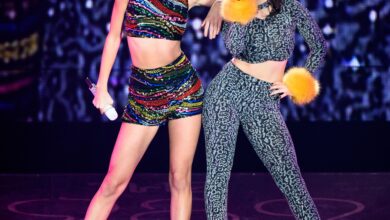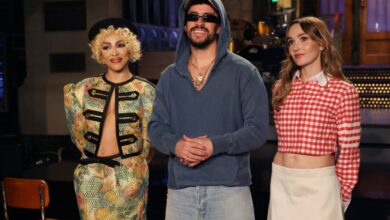Billie Eilish, Nicki Minaj, Katy Perry, Camila Cabello Sign Open Letter Warning About AI Threat to Artists
The Artists Rights Alliance, backed by around 200 music artists including Billie Eilish, Nicki Minaj, Katy Perry and Camila Cabello, has released an open letter calling on digital music developers to “cease the use of artificial intelligence (AI) to infringe upon and devalue the rights of human artists.”
The campaign raised the alarm on the the use of musical works by AI developers that without permission train and produce AI “copycats,” or use AI “sound” to dilute royalty obligations. Their intervention came as the threat from AI to creators, and its value to tech giants, is an increasing focus for the legal and pop music fields.
“Working musicians are already struggling to make ends meet in the streaming world, and now they have the added burden of trying to compete with a deluge of AI-generated noise. The unethical use of generative AI to replace human artists will devalue the entire music ecosystem — for artists and fans alike,” Jen Jacobsen, executive director of the ARA, said in a statement.
The advent of AI has allowed developers to use a vocal sample to transform songs they produce into ones that sound like a popular human artist who neither knows or gives permission for the song’s creation. Those who signed the open letter include Sam Smith, HYBE, Jon Bon Jovi, Norah Jones, Pearl Jam, R.E.M. Chuck D and Kate Hudson.
“Make no mistake: we believe that, when used responsibly, AI has enormous potential to advance human creativity and in a manner that enables the development and growth of new and exciting experiences for music fans everywhere. Unfortunately, some platforms and developers are employing AI to sabotage creativity and undermine artists, songwriters, musicians and rightsholders,” the artists’ open letter stated.
In October 2023, three major music publishers — Universal Music Publishing Group, Concord Music Group and ABKCO — sued Anthropic, an AI company that builds AI models by gathering information and text from the internet and training the models to produce output based on that internet sourcing. The music publishers alleged Anthropic infringed on copyrighted song lyrics.
“We must protect against the predatory use of AI to steal professional artists’ voices and likenesses, violate creators’ rights, and destroy the music ecosystem. We call on all digital music platforms and music-based services to pledge that they will not develop or deploy AI music-generation technology, content, or tools that undermine or replace the human artistry of songwriters and artists or deny us fair compensation for our work,” the artists’ letter continued.
Their campaign comes as U.S. politicians and regulators consider establishing protections to ensure the proper use of AI in music while compensating artists.
A full list of artists behind the campaign and their open letter is available on the Artists Rights Alliance website.


